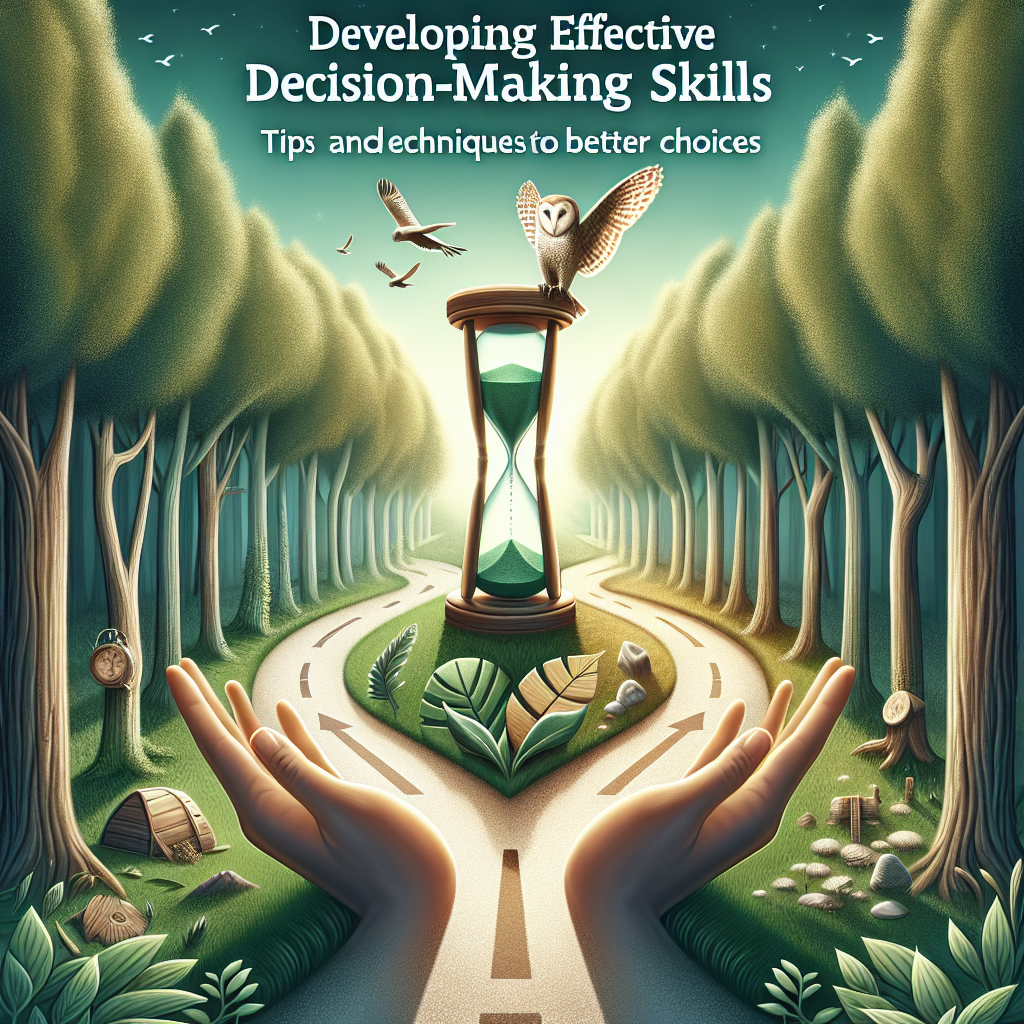Making decisions is an integral part of our daily lives, whether it be choosing what to wear in the morning, what to have for lunch, or where to go on vacation. However, when it comes to more significant decisions that can impact our lives in the long term, it can be overwhelming and stressful. Developing effective decision-making skills is crucial for making better choices and achieving success in both our personal and professional lives.
In this article, we will explore tips and techniques that can help improve your decision-making skills and make better choices.
1. Define the Decision
The first step in making an effective decision is to clearly define what decision needs to be made. This involves identifying the problem or opportunity that needs to be addressed and understanding the goals and objectives that you hope to achieve through the decision.
2. Gather Information
It’s important to gather relevant information and data before making a decision. This can involve conducting research, consulting with experts, and gathering feedback from others who may be affected by the decision. Having a thorough understanding of the situation will help you make a more informed decision.
3. Consider Alternatives
Once you have gathered information, it’s important to consider alternative options or solutions to the problem. This can help you weigh the pros and cons of each option and choose the one that aligns best with your goals and objectives.
4. Evaluate Risks and Benefits
Every decision comes with risks and benefits. It’s important to evaluate these factors before making a decision. Consider the potential consequences of each option and assess the likelihood of success or failure. Understanding the risks and benefits can help you make a more rational and strategic decision.
5. Seek Advice
Don’t be afraid to seek advice from others when making a decision. Consulting with friends, family, or colleagues can provide valuable insights and perspectives that you may not have considered on your own. Additionally, seeking advice from experts in the field can help you make a more informed decision.
6. Trust your Gut
While it’s important to gather information and consider alternatives, it’s also crucial to trust your intuition when making a decision. Your gut instinct can often lead you in the right direction, so don’t ignore it when making choices.
7. Make a Decision
After considering all the factors and alternatives, it’s time to make a decision. Trust in your judgment and have confidence in the choice you have made. Remember that no decision is set in stone, and it’s okay to adjust your course of action if needed.
8. Learn from the Outcome
Once a decision has been made, it’s important to reflect on the outcome and learn from the experience. If the decision was successful, understand why it worked and replicate the process in the future. If the decision did not yield the desired results, identify what went wrong and use that knowledge to make better decisions in the future.
FAQs:
Q: How do I know if I’m making the right decision?
A: Trust your intuition, gather as much information as possible, seek advice from others, and weigh the risks and benefits before making a decision. If you have followed these steps and feel confident in your choice, chances are you are making the right decision.
Q: What if I regret my decision?
A: It’s normal to have doubts or regrets about a decision, especially if the outcome is not what you expected. Instead of dwelling on the past, focus on learning from the experience and using that knowledge to make better decisions in the future.
Q: How can I improve my decision-making skills?
A: Practice makes perfect. The more decisions you make, the better you will become at it. Additionally, seek feedback from others, reflect on past decisions, and continue to educate yourself on effective decision-making techniques.
In conclusion, developing effective decision-making skills is essential for making better choices and achieving success in all aspects of life. By following the tips and techniques outlined in this article, you can improve your decision-making abilities and make more informed and strategic decisions. Remember to trust your intuition, gather information, consider alternatives, evaluate risks and benefits, seek advice, and learn from the outcomes. With practice and perseverance, you can become a more effective decision-maker and achieve your goals.





Leave A Comment